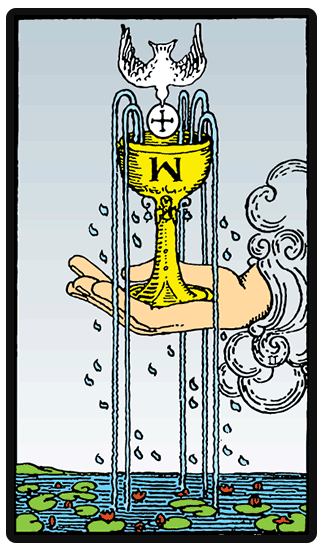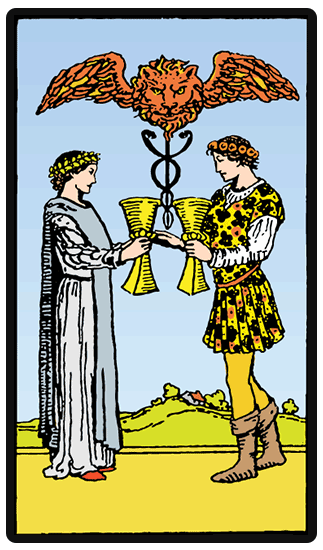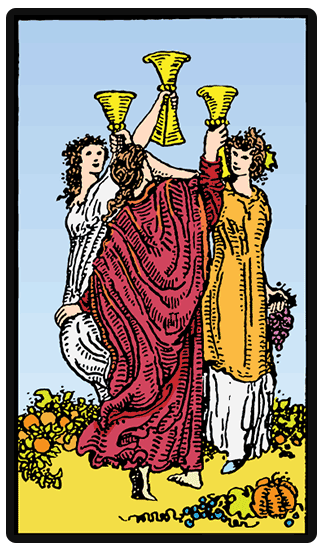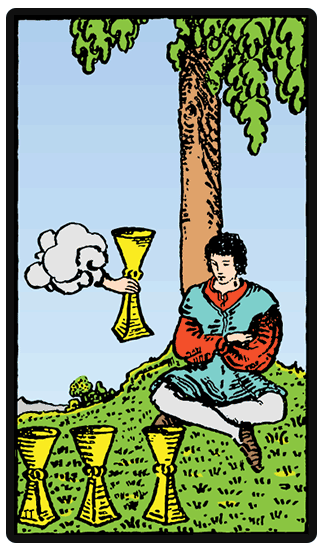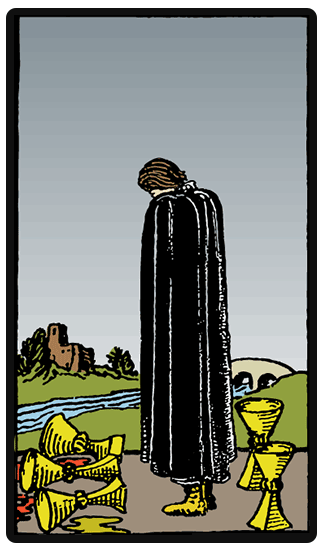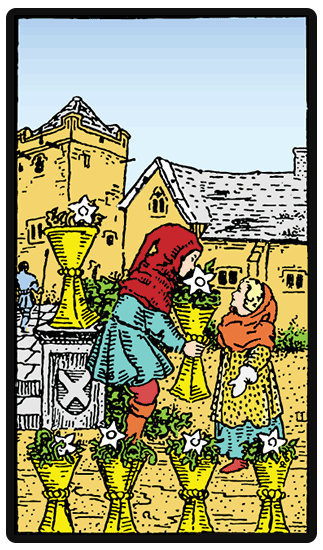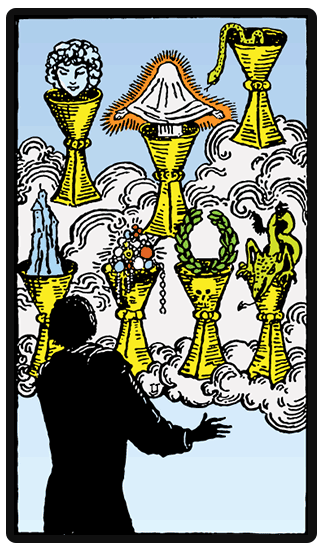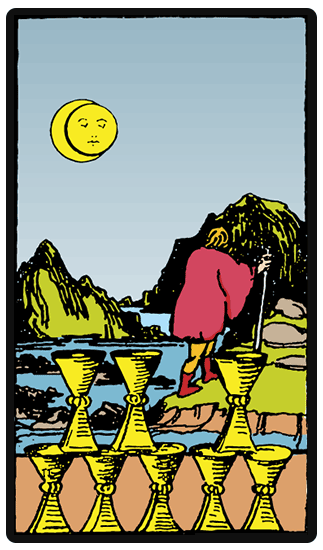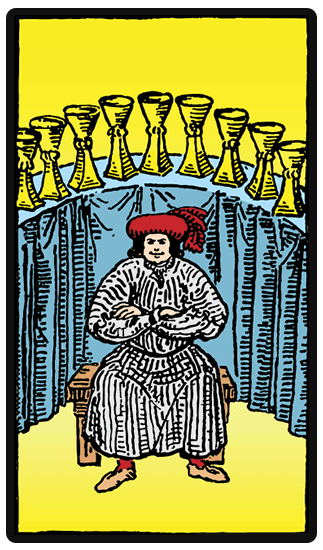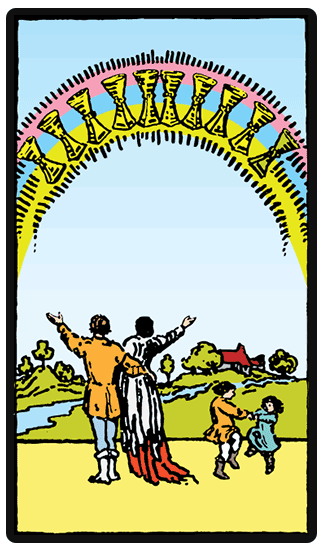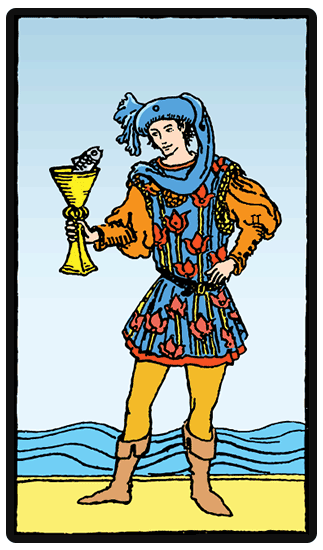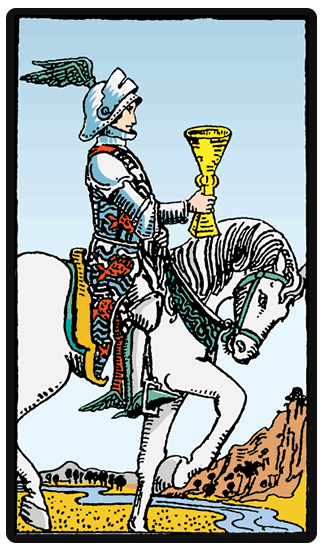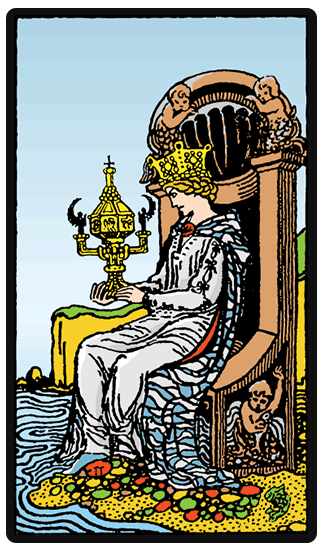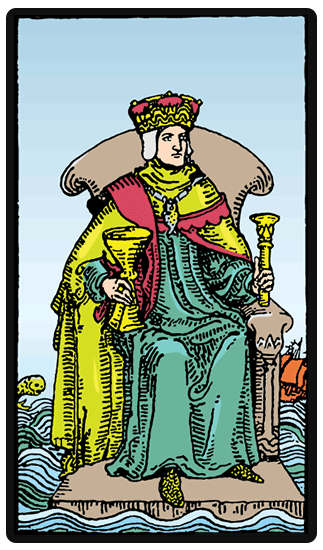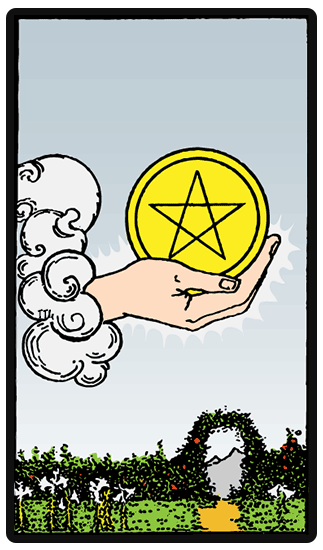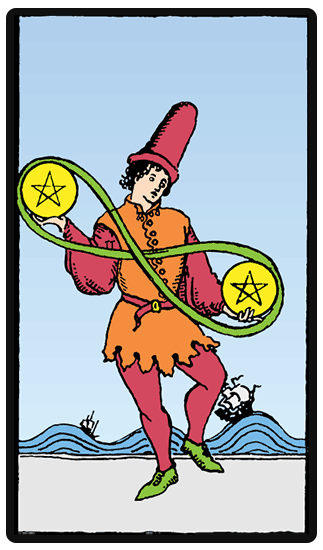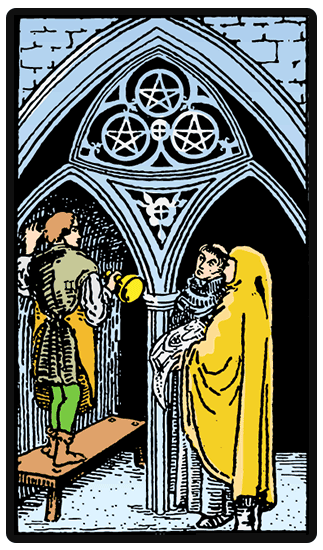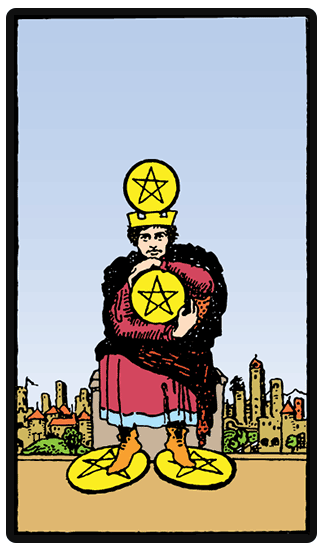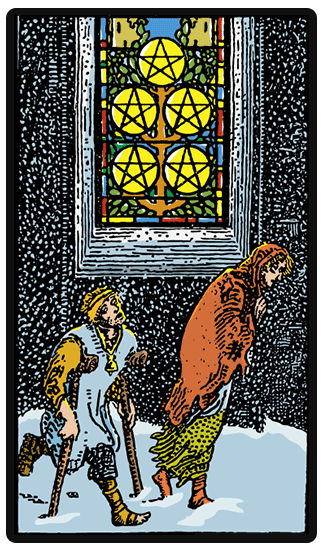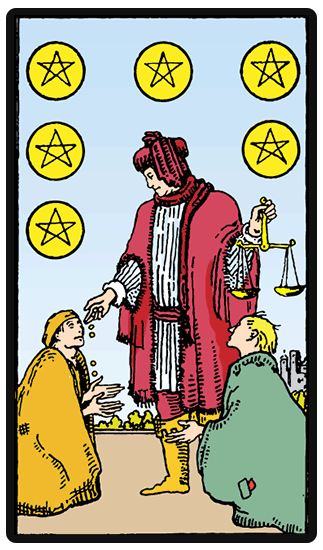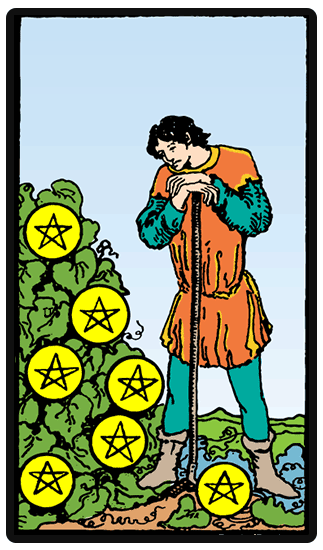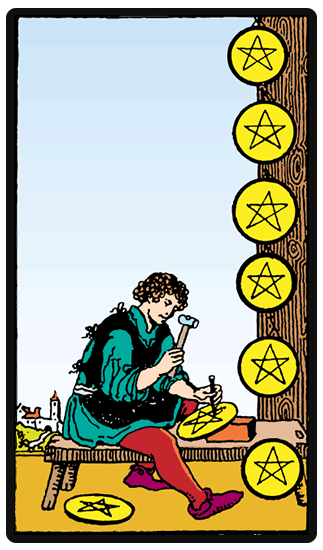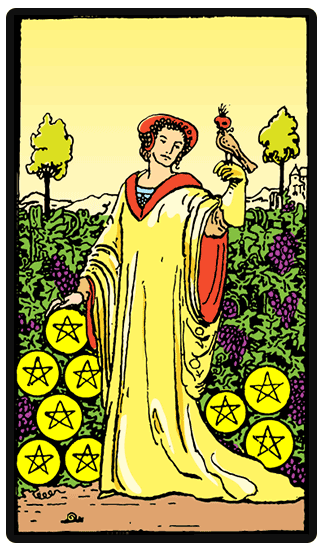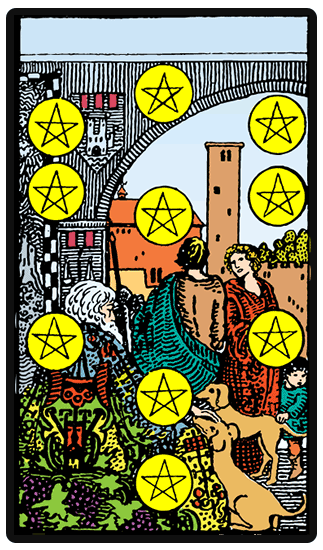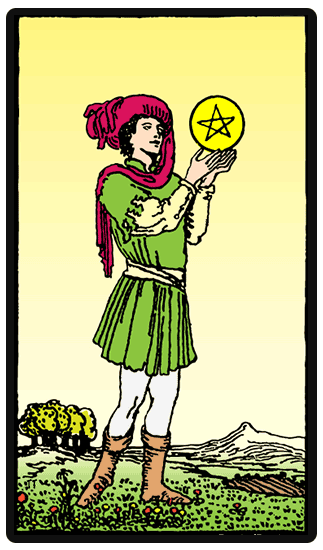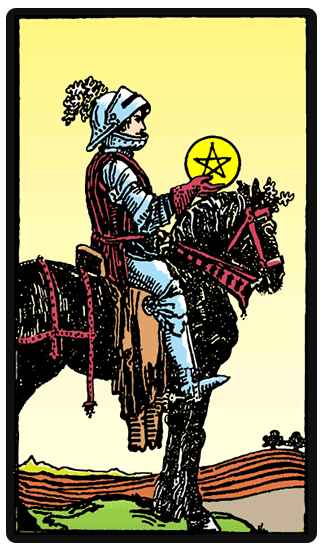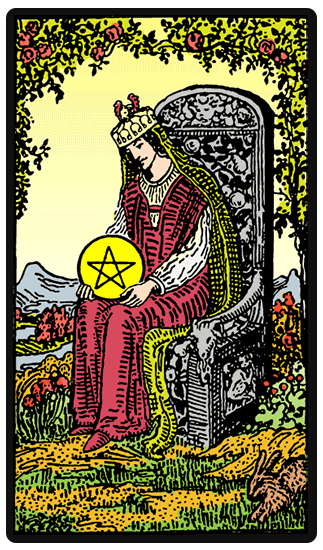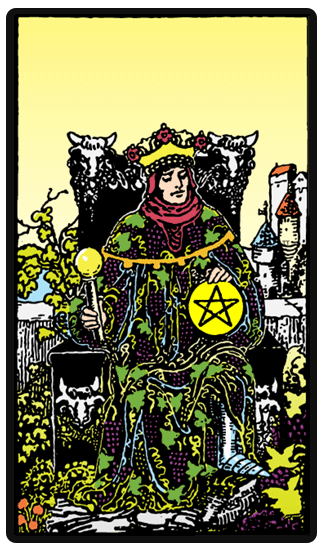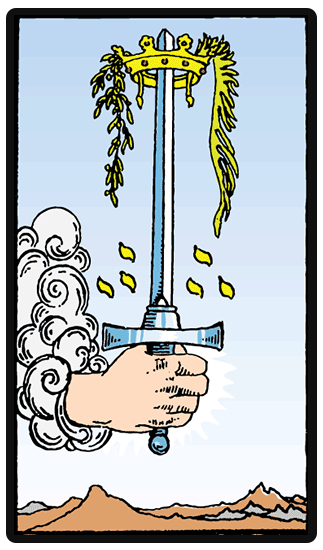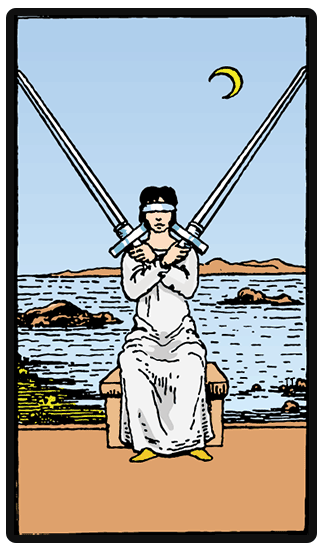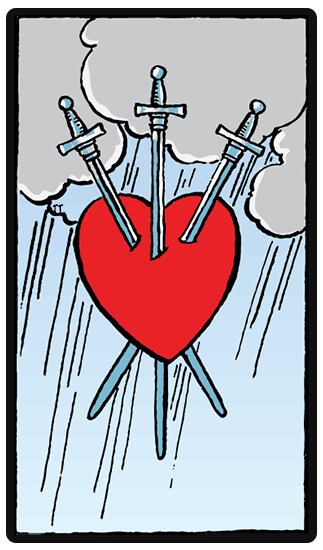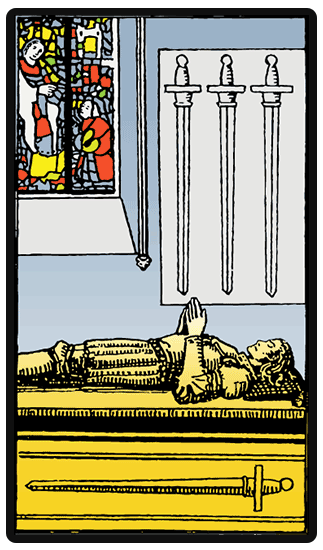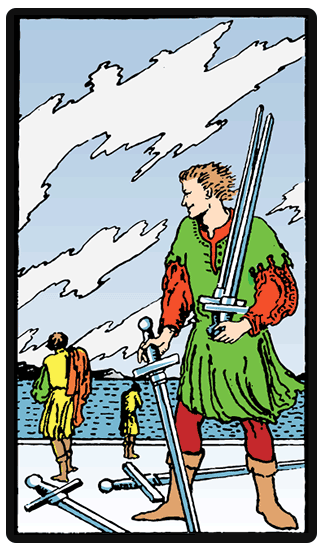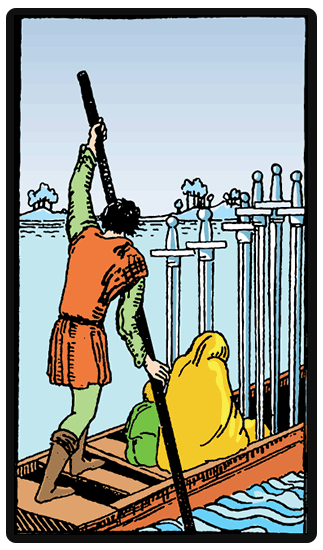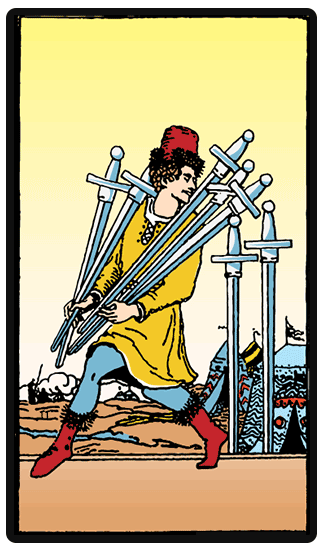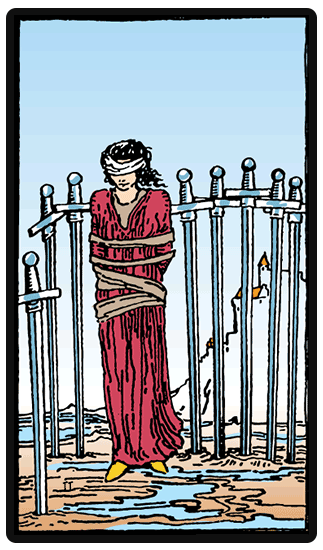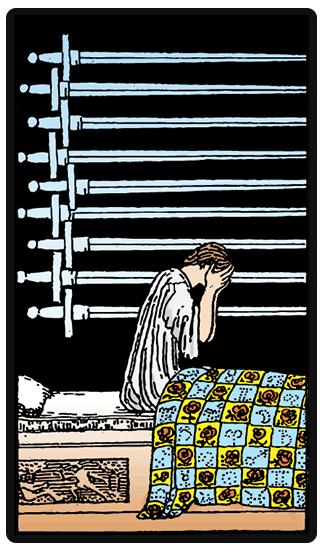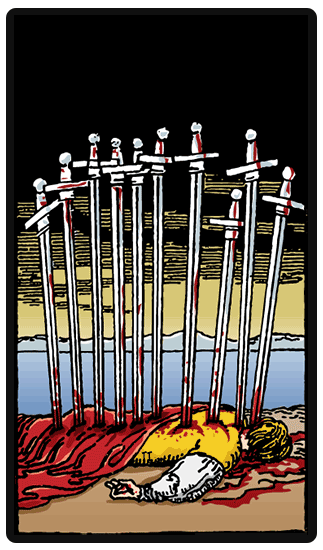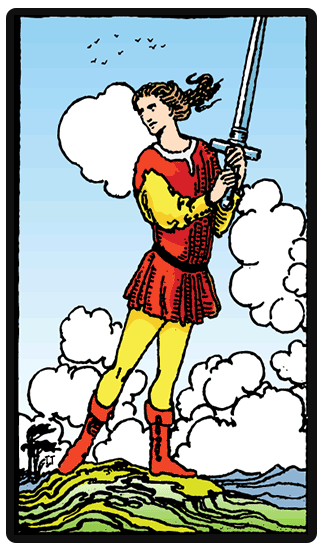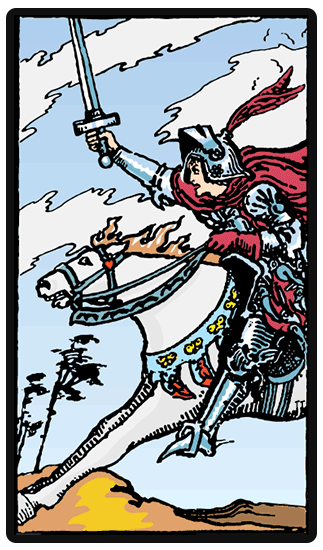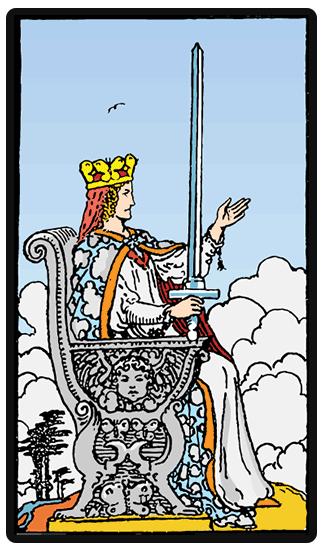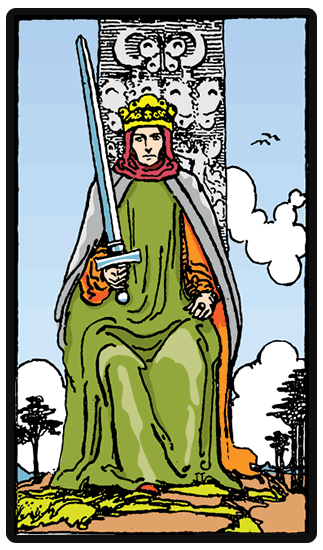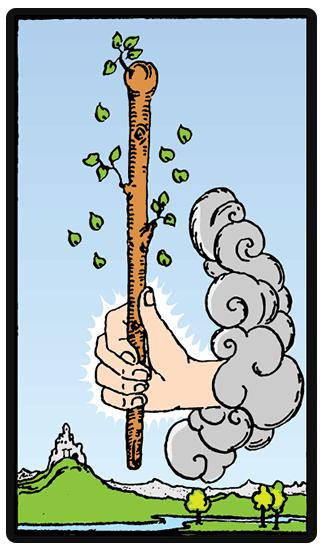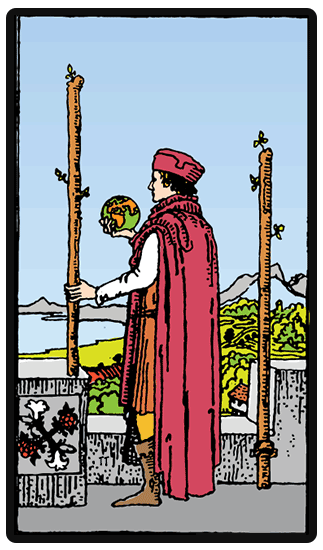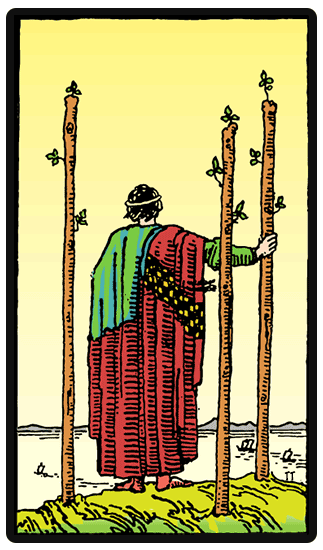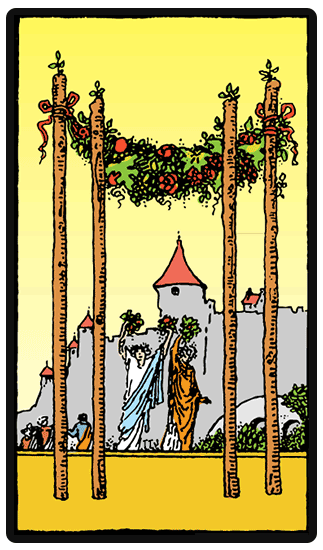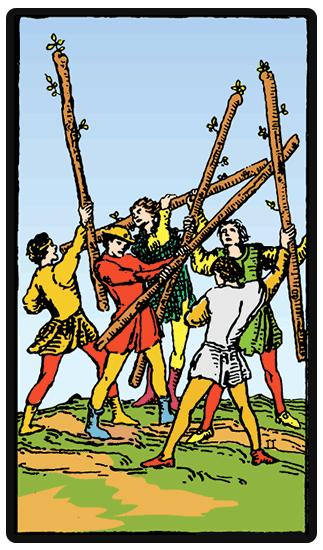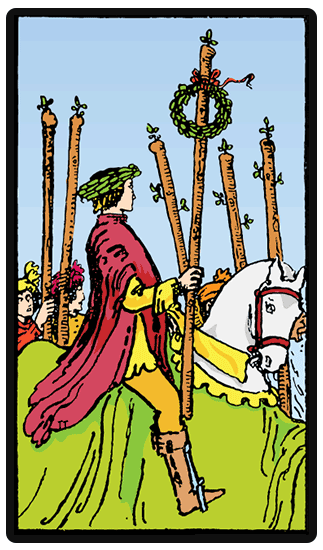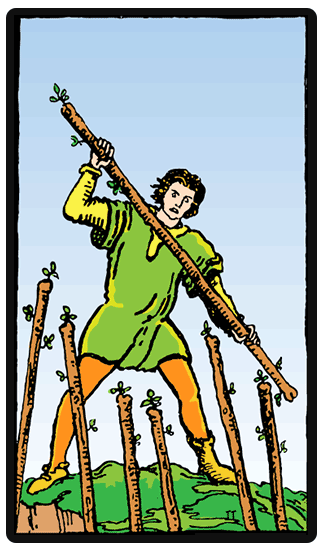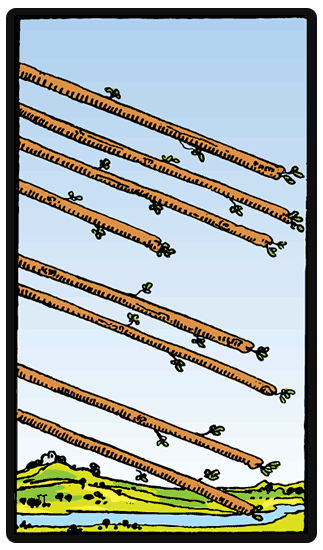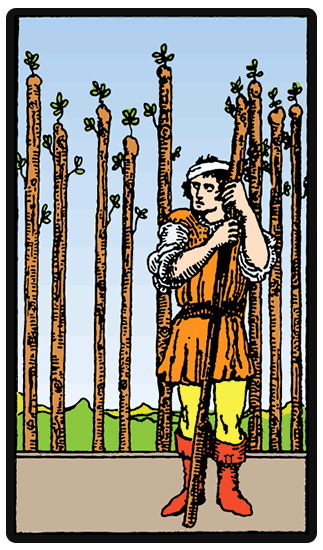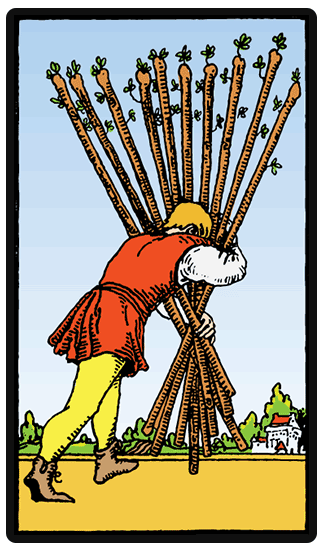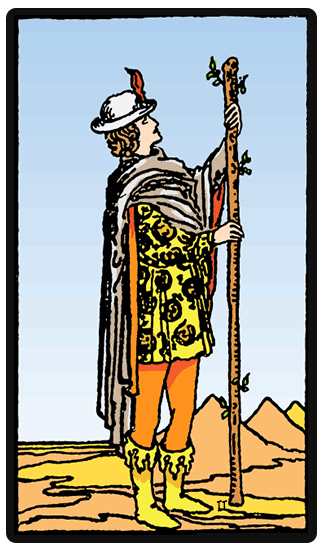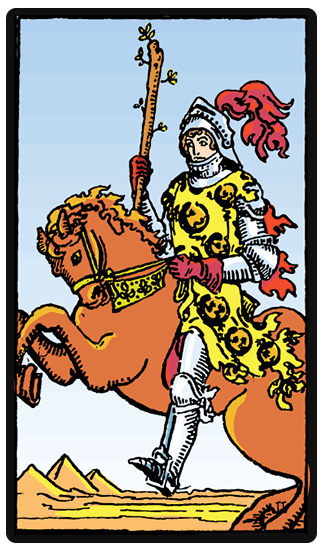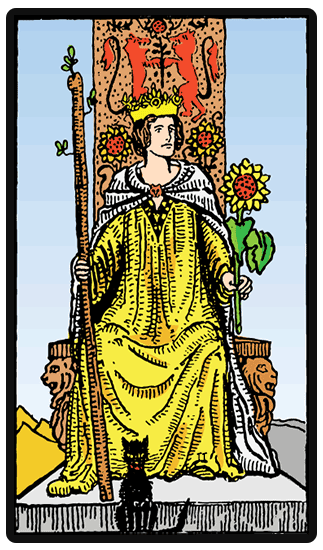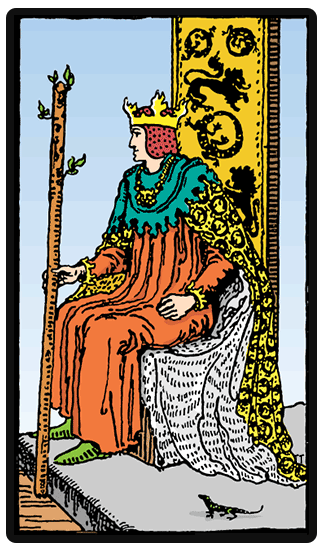The 56 cards of the Minor Arcana serve as the predecessors to modern playing cards, featuring four distinct suits just like their contemporary counterparts. Corresponding to traditional playing card suits, Wands align with clubs, Cups with hearts, Swords with spades, and Coins with diamonds. Within each suit, there are ten numbered cards (Ace through 10) and four court cards (Page, Knight, Queen, and King). Despite being termed ‘minor’, these cards wield considerable influence, offering insights into the everyday challenges and experiences we encounter.
Although labeled ‘minor’, the Minor Arcana cards possess the ability to significantly impact our lives. They are intimately tied to our daily experiences, shedding light on how current circumstances shape our journey and providing guidance on navigating toward our aspirations.
The Minor Arcana is composed of four distinct suits, each representing different facets of life:
- Suit of Cups: The suit of cups are usually associated with emotions, and correspond with the astrological element of water. The associated Zodiac signs are Pisces, Cancer, and Scorpio.
- Suit of Pentacles (Coins): The suit of pentacles are usually associated with the finance and material aspects, and correspond with the astrological element of earth. The associated Zodiac signs are Taurus, Capricorn and Virgo.
- Suit of Swords: The suit of swords are usually associated with intellectual activity, and correspond with the astrological element of air. The associated Zodiac signs are Gemini, Libra and Aquarius.
- Suit of Wands: The suit of wands are usually associated with the career, and correspond with the astrological element of fire. The associated Zodiac signs are Leo, Aries and Sagittarius.
Each suit of the above comprises 10 numbered cards and four Court Cards (Page, Knight, Queen, and King), with the Court Cards embodying various personality traits that we may choose to embody or encounter in ourselves and others.
The Suit of Cups
The Tarot’s Suit of Cups pertains to the emotional aspect of consciousness and encompasses themes of love, sentiments, interpersonal bonds, and connections. In a standard deck of playing cards, the Cups correspond to the Hearts suit.
Aligned with the element of water, the Suit of Cups embodies fluidity, agility, and a state of continuous flux. Water exhibits a duality of characteristics: it possesses a gentle and soothing nature, akin to waves caressing a sandy coastline, yet it also harbors immense power, capable of surging like a turbulent river. Water symbolizes fluidity, emotions, intuition, relationships, healing, and purification. It embodies feminine energy, reflecting the subtle yet potent influence often associated with women. Water is receptive, adaptable, cleansing, and perpetually in motion.
A. Ace of Cups
A hand emerges from a cloud, offering a cup overflowing with water, symbolizing new beginnings in emotions, love, and intuition.
II. Two of Cups
Two figures exchange cups, symbolizing partnership, harmony, and mutual love or understanding.
III. Three of Cups
Three figures raise their cups in celebration, representing joy, friendship, and community.
IV. Four of Cups
A figure sits under a tree, contemplating three cups while a fourth cup is offered from above, suggesting introspection, contemplation, and discontent.
V. Five of Cups
A figure stands before three spilled cups while two cups remain upright, signifying loss, regret, and focusing on the negative aspects rather than the positives.
VI. Six of Cups
A figure hands a cup to another figure, representing nostalgia, innocence, and childhood memories.
VII. Seven of Cups
A figure looks at seven cups, each containing a different image or illusion, symbolizing choices, fantasies, and confusion.
VIII. Eight of Cups
A figure walks away from a row of cups towards a distant mountain, suggesting abandonment, leaving behind emotional attachments, and seeking spiritual growth.
IX. Nine of Cups
A figure sits contentedly with nine cups arranged behind them, representing emotional satisfaction, fulfillment, and contentment.
X. Ten of Cups
A loving couple stands together with children, surrounded by a rainbow arching over their home, symbolizing emotional fulfillment, harmony, and happy family life.
P. Page of Cups
A youthful figure holds a cup with a fish emerging from it, symbolizing creativity, intuition, and new emotional experiences.
KN. Knight of Cups
A knight rides a horse near the sea, holding a cup, representing romance, charm, and idealism in pursuit of emotional fulfillment.
Q. Queen of Cups
A serene queen sits on a throne, holding a cup, symbolizing compassion, intuition, emotional stability, and nurturing qualities.
K. King of Cups
A wise king sits on a throne, holding a cup, representing emotional maturity, control over emotions, compassion, and leadership in matters of the heart.
The Suit of Pentacles (Coins)
The Tarot cards in the Suit of Pentacles are focused on the physical aspects of life, representing external circumstances related to health, finances, work, and creativity. They reflect how we interact with and shape our external environment, as well as our attitudes towards material success and self-worth. In a standard deck of playing cards, the Pentacles correspond to the Diamonds.
Associated with the element of Earth, the Suit of Pentacles embodies qualities of solidity, practicality, and manifestation. Earth is tangible and provides a stable foundation for growth and nourishment. It symbolizes fertility, stability, and abundance, nurturing life and fostering growth. In a broader sense, the Pentacles also touch upon themes of self-esteem, ego, and how we perceive ourselves in relation to the material world.
A. Ace of Pentacles
This card symbolizes new beginnings, opportunities, and potential for prosperity. It often represents a solid foundation for financial growth or a new venture.
II. Two of Pentacles
Represents balance, juggling priorities, and adapting to changes in the material world. It suggests flexibility and resourcefulness in managing responsibilities.
III. Three of Pentacles
Signifies collaboration and craftsmanship. Represents the initial stages of a project where skills are being honed and efforts are being coordinated for long-term success.
IV. Four of Pentacles
Represents stability, security, and holding onto resources. It can indicate a desire for control or a reluctance to let go of possessions, leading to stagnation or missed opportunities.
V. Five of Pentacles
Symbolizes financial hardship, lack, and adversity. Suggests feelings of isolation or struggle, but also reminds us to seek support and find resilience during tough times.
VI. Six of Pentacles
Represents generosity, charity, and sharing abundance. It signifies acts of giving and receiving, as well as finding balance in wealth distribution and philanthropy.
VII. Seven of Pentacles
Represents patience, investment, and assessment of progress. It suggests a period of waiting or reevaluation, where efforts are being reviewed to ensure future growth and success.
VIII. Eight of Pentacles
Symbolizes dedication, craftsmanship, and mastery of skills. It signifies hard work, attention to detail, and continuous improvement to achieve long-term success.
IX. Nine of Pentacles
Represents luxury, self-sufficiency, and material well-being. Suggests enjoying the fruits of one’s labor, cultivating abundance, and appreciating the finer things in life.
X. Ten of Pentacles
Signifies wealth, legacy, and long-term success. It represents financial security, family prosperity, and the fulfillment of generational goals or traditions.
P. Page of Pentacles
Represents a youthful energy focused on learning, practicality, and new opportunities. The beginning stages of a journey toward mastery or financial growth.
KN. Knight of Pentacles
Signifies diligence, responsibility, and reliability. Represents a methodical approach to achieving goals, often through hard work, perseverance, and attention to detail.
Q. Queen of Pentacles
Nurturing, abundance, and practicality. She represents a maternal figure who is grounded, resourceful, and able to create a comfortable and secure environment for herself and others.
K. King of Pentacles
Symbolizes success, wealth, and mastery over the material realm. Represents a confident and prosperous individual who is capable of managing resources wisely and creating long-term financial stability.
The Suit of Swords
The Suit of Swords Tarot cards pertain to the realm of the intellect and mental consciousness. They reflect the quality of thought, perception, and belief systems that shape your mindset. In a standard deck of playing cards, Swords corresponds to the suit of Spades. Swords embody a duality, much like their physical counterparts, symbolizing the delicate equilibrium between intellect and strength, and how these attributes can be wielded for both constructive and destructive purposes. Therefore, to achieve optimal outcomes, Swords must be harmonized with the spiritual essence represented by Wands and the emotional depth embodied by Cups.
Associated with the element of Air, the Suit of Swords aligns with intangible yet dynamic forces. Like the unseen currents of the atmosphere, Air is ever-present yet often unnoticed, capable of manifesting as a gentle breeze or a formidable gale. It epitomizes potency alongside clarity and purification. Conceptually, the element of Air signifies cognition, decisive action, empowerment, and metamorphosis. It exudes a masculine vigor that asserts influence and catalyzes change, despite its imperceptible nature.
A. Ace of Swords
Symbolizes clarity of thought, mental breakthroughs, and new perspectives. Represents triumph, intellectual insight, and the power of the mind to cut through confusion or obstacles.
II. Two of Swords
Depicts a stalemate or decision-making dilemma. A need for impartiality, inner conflict, or a temporary truce. It urges you to seek balance and resolution amidst opposing forces.
III. Three of Swords
Heartache, sorrow, and emotional pain. Represents grief, loss, or betrayal. Encourages acknowledging and processing difficult emotions to facilitate healing and growth.
IV. Four of Swords
Rest, recuperation, and contemplation. Suggests a period of retreat or recovery from stress or mental exhaustion. Advises taking a break to recharge and regain clarity.
V. Five of Swords
Conflict, defeat, disharmony, situation of strife, power struggles, or winning at the expense of others. Warns against the negative consequences of pursuing victory through unethical means.
VI. Six of Swords
Transition, moving forward, and seeking solace. Represents leaving behind turbulent waters and embarking on a journey towards calmer shores. Offers hope for smoother waters ahead.
VII. Seven of Swords
Deception, trickery, or evasion. It may suggest cunning strategies, stealthy actions, or a need for vigilance against deceit. Advises caution and encourages honesty and integrity.
VIII. Eight of Swords
Restriction, entrapment, feeling trapped by self-imposed limitations, state of mental bondage or perceived obstacles hindering progress. Urges breaking free from limiting beliefs and seeking liberation.
IX. Nine of Swords
Represents anxiety, worry, sleepless nights, inner turmoil, fear, or overwhelming stress. Encourages confronting and addressing fears or seeking support to alleviate mental distress.
X. Ten of Swords
Betrayal, defeat, rock bottom, reaching the end of a challenging cycle or experiencing a significant loss. Suggests acceptance, release, and embracing the opportunity for new beginnings after adversity.
P. Page of Swords
Represents curiosity, intellect, youthful energy, the pursuit of knowledge, new ideas, or a thirst for learning. Encourages exploration and embracing intellectual challenges with enthusiasm.
KN. Knight of Swords
Action, determination, and swift movement. A focused and assertive approach to achieving goals or overcoming obstacles. Urges courage, decisiveness, and charging forward with conviction.
Q. Queen of Swords
Independence, intellect, clear communication, a sharp mind, impartial judgment, and the ability to cut through illusions or deceit. Encourages honesty, logic, and maintaining mental clarity.
K. King of Swords
Authority, intellect, leadership, wisdom, rationality, and strategic thinking. This card suggests taking a principled approach, making fair decisions, and exercising authority with integrity.
The Suit of Wands
The meanings attributed to the Suit of Wands in Tarot are linked with primal vitality, spiritual essence, inspiration, determination, fortitude, intuition, inventiveness, aspiration, and broadening horizons—representing the inception of life’s unfolding journey. In standard playing cards, the Suit of Wands corresponds to Clubs.
Aligned with the element of Fire, the Suit of Wands embodies fervor, spontaneity, dynamism, and vigor. Fire exhibits both constructive potential, aiding in cooking and crafting, and perilous tendencies, manifesting as wildfires or conflagrations. Symbolically, Fire epitomizes fervency, drive, ardor, and sensuality, characterizing the assertive vigor and resolute determination intrinsic to masculine energy.
A. Ace of Wands
Represents new beginnings, inspiration, potential, and creative energy bursting forth.
II. Two of Wands
Symbolizes planning, foresight, decision-making, and taking the first steps towards a goal or venture.
III. Three of Wands
Signifies expansion, progress, exploration, and looking ahead to future opportunities and growth.
IV. Four of Wands
Represents celebration, harmony, stability, and achieving a significant milestone or success.
V. Five of Wands
Symbolizes competition, conflict, struggle, and challenges that arise from differing perspectives or goals.
VI. Six of Wands
Signifies victory, recognition, success, and receiving acknowledgment or acclaim for accomplishments.
VII. Seven of Wands
Represents perseverance, resilience, standing your ground, and defending your position or beliefs against opposition.
VIII. Eight of Wands
Symbolizes rapid progress, swift changes, movement, and messages or opportunities coming in quickly.
IX. Nine of Wands
Signifies resilience, perseverance, inner strength, and overcoming obstacles or challenges with determination.
X. Ten of Wands
Represents burden, overwhelm, responsibility, and feeling weighed down by obligations or commitments.
P. Page of Wands
Symbolizes enthusiasm, exploration, curiosity, and embarking on a new adventure or creative project with youthful energy and optimism.
KN. Knight of Wands
Represents action, adventure, impulsiveness, and pursuing your goals with passion, courage, and a sense of daring.
Q. Queen of Wands
Signifies confidence, independence, leadership, and charisma. She is a nurturing and dynamic individual who radiates warmth and vitality.
K. King of Wands
Mastery, vision, authority, confidence, strength, and determination. He is a natural leader and visionary who inspires others with his passion and charisma.
What Does a Minor Arcana Card Signify in a Tarot Reading?
In a Tarot reading, a Minor Arcana card offers insights into your daily experiences and how they shape your current state. These pragmatic cards depict the various interactions, encounters, thoughts, and emotions that unfold as you navigate through life. While a Major Arcana card sheds light on the overarching life lessons you’re undergoing, a Minor Arcana card illuminates the specific situations you’re presently confronting. These situations are transient and subject to change based on the decisions and actions you take.
What Does It Suggest When a Tarot Reading Consists Mostly of Minor Arcana Tarot Cards?
When the majority of the Tarot cards in your reading belong to the Minor Arcana, it indicates that you’re grappling with day-to-day matters that may not hold prolonged significance in your life. These issues come and go, providing opportunities for growth and learning from the experiences they present. Pay attention to any Major Arcana cards present in the reading, as they offer insights into the broader lessons at play and how they could impact your life trajectory over the long term.
